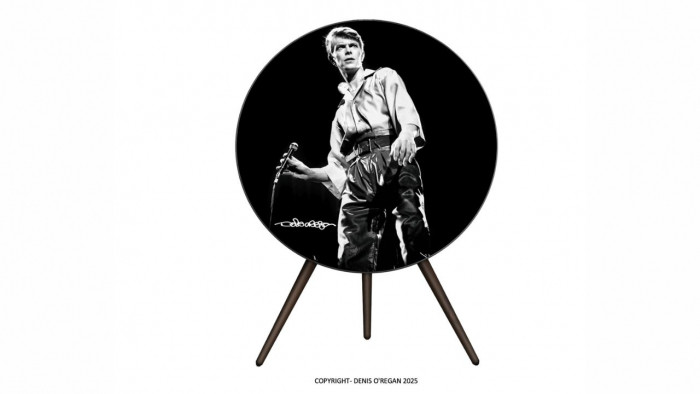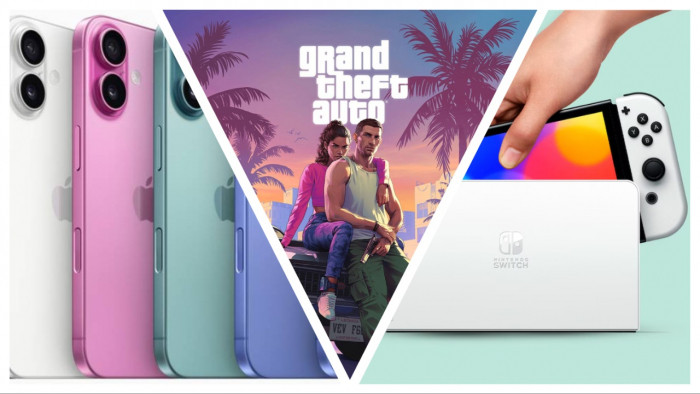What do you mean, you've never heard of Elon Musk?
While the youthful face of this South African-born Canadian-American (owner of one of the most deceptive accents on the planet) might not be as recognisable as the likes of Steve Jobs or Bill Gates, Musk is the closest thing we've got to a real life Tony Stark (director Jon Favreau even said Musk served as a benchmark for the Iron Man movies).
With Musk's latest technology venture - a solar-powered home battery that threatens to shake up energy supply - gaining $800 million (£516m) of orders in its first week, we've assembled a fact file explaining why the roving, restless mind of this man could shape the future of our transport, energy and space-going future. But first, some facts.
What's his background?

Musk started his love-affair with technology at a very early age. Son of Errol Musk, a South African-born electrical and mechanical engineer, and Maye Musk, a Canadian-English model, Musk sold his first computer program for $500 at the age 12: code for a video game titled Blastar.
But gaming wouldn't prove to be the main outlet for his computer skills: his first major business success came in 1995, when he and his brother Kimbal launched internet city guide service Zip2. A successful sale to Compaq freed up his time to launch the email payment service X.com, leading to a merge with Confinity which was working on a similar solution called PayPal. When PayPal was poached by eBay in 2002, Musk - as the company's largest shareholder - made a cool $165 million. He was only 31 years old.
Latterly, he is turning his attention to potentially world-changing endeavours.
He's making space travel affordable

Space is expensive. Getting to it, staying in it, looking at it, all costs a heap of money.
The US Government has been steadily reducing NASA's budget since 1965. The Space Shuttle programme, which ran from 1971 to 2011, was said to have cost $450 million per launch (though some put that figure closer to $1.3 billion). Resupplying the International Space Station and putting satellites in orbit is a wallet-draining headache that isn't about to go away - or, as Musk sees it, a business opportunity thin on competition.
Funded in part by his PayPal wealth, Musk set up SpaceX in 2002. Its early projects were focused on reducing the cost of rockets: in 2010 it became the first private company to successfully put a spacecraft in orbit and bring it back, before its Dragon craft became the first private spacecraft to dock with the International Space Station in 2012.
Having clocked up contracts with NASA, the US Government, the American Military and a bunch of (hopefully not shady) private companies to help put things in space, SpaceX is now aiming for a manned mission to Mars, reusable rocket ships and even more advanced rockets.
He's revolutionising the electric car

You'd think trying to get to Mars would be enough to occupy the mind of the average engineer - but, as you're probably starting to realise, Musk doesn't do ordinary.
Shortly after launching SpaceX, he helped establish the electric car company, Tesla motors (now officially a co-founder, his exact role was the subject of a rather messy lawsuit), with the aim of taking on the oil-guzzling motoring industry with an electric car the general public would actually want to own.
After grabbing headlines with the Roadster (a sporty little number that used a body supplied by the UK's Lotus group), Tesla made good on their promise of creating a practical electric car with the launch of the Model S in 2008. Battery powered, with a range of up to 265 miles per charge, the Model S set about overpowering the all-electric competition - scooping up "Car Of The Year" awards in 2013 and 2014.
Tesla continues to strive to make the electric car industry more competitive. As well as improving charging facilities across the US and international markets (with extra-cool Doc-Ock-esque fuel arm designs), it has taken the bold step of opening up its patents to everyone.
"We believe that Tesla, other companies making electric cars, and the world would all benefit from a common, rapidly-evolving technology platform," wrote Musk in his blog last June.
He's inventing new forms of transportation

"Reaching speeds of 760 miles per hour," isn't the sort of sentence you'd take seriously outside of a science fiction novel. It's akin to, "making the Kessel Run in 12 parsecs".
But this is the improbable aim of Musk's latest transport brainchild, the Hyperloop.
Describing the tube-riding system as a, "cross between a Concorde and a railgun and an air hockey table", Musk envisages transporting passengers across the 354 miles between Los Angeles to San Francisco Bay Area in 35 minutes.
In essence, Hyperloop would see capsules propelled along a large tube line under partial vacuum, thus reducing the friction and resistance on the capsule and helping it motor along with an average speed of 598 mph. Currently set for construction and testing in California next year, if it works, Hyperloop could help make the world an even smaller place.
And now he's trying to disrupt the energy market

By which we mean he isn't repeatedly flicking the lights on and off.
On 30 April this year, Tesla revealed its latest battery venture, the PowerWall: a rechargeable battery, paired with rooftop solar panels, that can power your domestic needs and thus cut your reliance upon the variable costs of being plugged into the wider grid.
With a clever combination of charging during low usage periods (like when you're out at work) and kicking in to help power your evening Netflix marathon, the PowerWall is set to arrive in two models (a $3,500 10kWh model and a $3,000 7kwWh model) this summer - with some $800 million-worth units already reserved in its first week.
He's scared of AI
Should you be conjuring an image of a Tony Stark-esque megalomaniac driving around California on the cusp of accidentally starting his own Age Of Ultron war, breathe easy.
Having raised concerns over creating an all-powerful AI system in multiple tweets and stage appearances, Musk proved his fears were more than just headline-grabbing PR when he donated $10 million to the Future of Life Institute group. Their aim? To ensure any AI we create is human-friendly.
You should now have some fact-ammo to help you out when you next overhear someone posing the question "Who is Elon Musk?". Here's hoping he keeps on the route of Tony Stark rather than turning into the James Bond villain his career is readily paralleling.
(Images: Rex)










